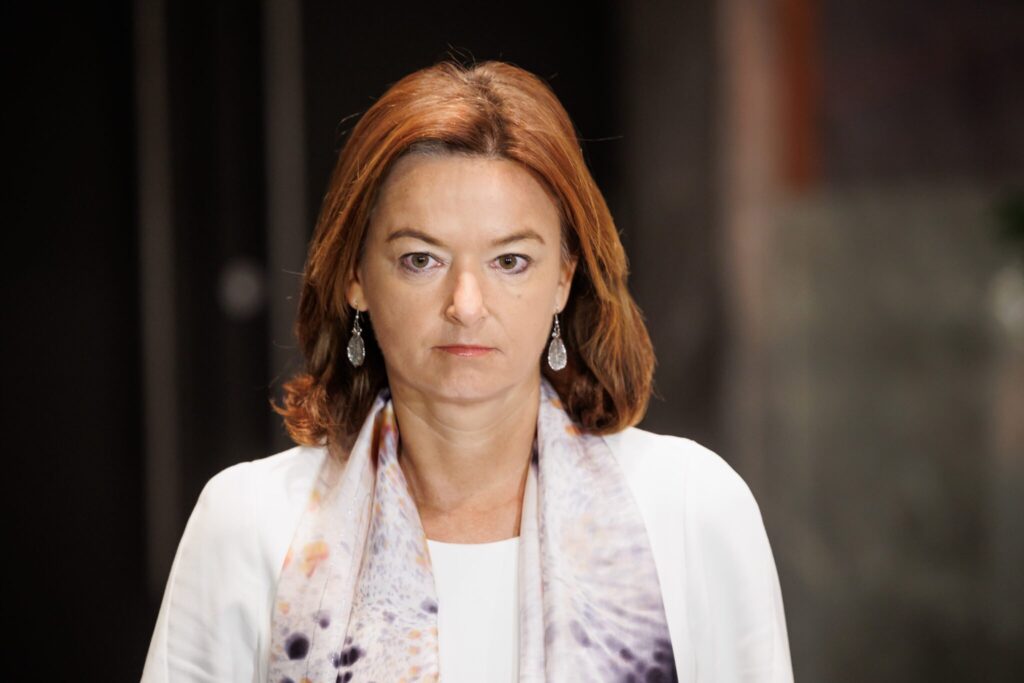The “feminist foreign policy” of Minister of Foreign and European Affairs Tanja Fajon has so decisively driven Slovenian politics into the arms of the Iran-Russia axis of evil that it will probably take decades before we shake off the stigma of being part of the “good-for-nothing” group of states. Recently, the Slovenian ambassador to Tel Aviv was summoned to a hearing by the Israeli ambassador due to her support for the terrorist state of Palestine. But the message is broader than that – she has been summoned by the entire developed West to defend herself. She was summoned there by our allies, who are considered the most developed countries in the world.
Namely, the Israeli Foreign Ministry summoned the Slovenian Ambassador to Tel Aviv, Andreja Purkart Martinez, for talks on the Slovenian vote in favour of Palestine’s membership in the United Nations, as confirmed by Foreign Minister Tanja Fajon, the Slovenian Press Agency (STA) confirmed.
Fajon stressed that Slovenia does not see Palestine’s UN membership as a threat to Israel’s security. “Israel has reiterated its well-known positions, which it has also expressed in the Security Council, and our ambassador confirmed and reiterated Slovenia’s position that for us, Palestine’s membership in the United Nations is in no way a threat to Israel’s security and stability,” Fajon said. Slovenia believes that all the criteria for Palestine to become a member of the UN are met, which, in Fajon’s view, would also ensure the security of Israelis and their peaceful coexistence with Palestinians.
Israel’s security alongside a terrorist state?
Fajon’s statements are so absurd that they can only be understood in three ways: that she is completely ignorant of international relations, that she is a paid Iranian agent (namely, Iran is the only one in the Middle East that wants a sovereign Palestine), or that she has adapted her statements to the Slovenian micro-sphere of political perception that remains somewhere in the 1970s.
Recognition of two separate enclaves, ruled by one more and one less moderate terrorist organisation, which for decades have been poisoning their populations with the idea that the only way to peace is to massacre all Jews and to occupy the whole of Israel’s territory (‘from the river to the sea’), is not a guarantee of peace in the Middle East. If we look at the conflict over time, we find that the two-state solution (which is far more generous than the territory of the West Bank and Gaza today) has been offered by Israel several times in the last eight decades – but each time, it was rejected by the Arab despots themselves, who also swore time and again that the holy wars and intifadas would not end until the last Jew in the Middle East was slaughtered – just as Jews were driven out of other ancient homes in North Africa and the Arabian Peninsula before Arab militant expansionism. This is only the last act of colonialism – these 20,000 square kilometres, the size of Slovenia, are the last piece of the puzzle for the Arabs living there.
What will Slovenia’s turn towards autocracy mean for our future?
It is very important to understand that foreign policy happens behind closed doors. The one-line pleasantries we hear in public (“we want to strengthen our friendly relations”) are intended only for the public. In reality, the hard bargaining is going on in the diplomatic rooms, where the big countries have a huge advantage and operate on a carrot-and-stick basis. The Western allies – who are also the richest countries in the world – have received the signal that Slovenia no longer belongs in their free part of the world, which includes the only liberal democracy in the Middle East (Israel). Slovenia has given a clear signal of where it belongs by supporting terrorist Arab extremists. And we will only realise the consequences of these decisions in years – if not decades.
Economic diplomacy is the key
Western countries invest in friendly countries. They are attracted by abundance and free-market capitalism; the Russian Federation, on the other hand, can only afford to expand the ‘Russian world’ with a tank pipe, because it has nothing else to offer. In foreign policy, it is all about transactions. When statesmen visit a foreign country, they bring businessmen with them, who then make deals at a high political level.
When the French President Emmanuel Macron travels around the world, he is always accompanied by an Airbus CEO with unsigned contracts for over 100 aircraft to be bought by state-owned airlines. But smaller, highly specialised companies also come with him. Economic diplomacy is, in fact, the only reason why diplomacy exists at all – war is purely the result of the breakdown of economic diplomacy. This is critical for a country like Slovenia because we do not have a sufficiently developed private enterprise.
So, where will we be invited to now? No longer to France. No longer to the United Kingdom. Not to the USA. Maybe to Iran, Russia, Belarus… Slovenia has signalled its allegiance to an authoritarian, less developed part of the world and, in so doing, has given up all the economic benefits of such allegiance.
Mitja Iršič


